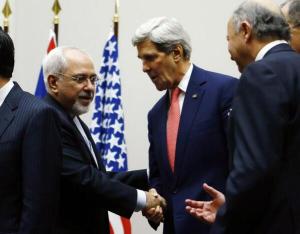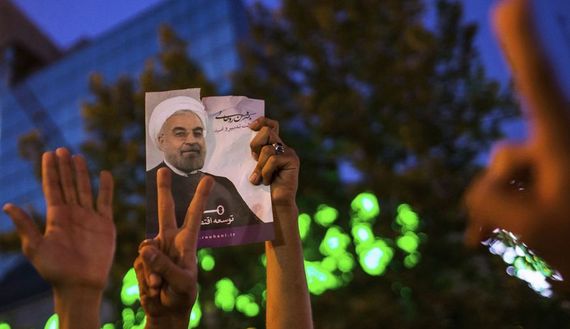It looks like the world might be on the brink of a new relationship with The Islamic Republic of Iran. With the change of the presidency to a more moderate leader, Hassan Rouhani, the door to negotiations over Iran’s nuclear program has opened and the Obama administration has stepped in to take advantage of it.
 The US Secretary of State John Kerry and Iran’s Minister of Foreign Affairs, Javad Zarif, along with the foreign ministers of five other world powers (China, UK, France, Russia, and Germany), rolled up their sleeves to seal an interim deal under which Iran would cap its nuclear activity in exchange for limited relief from the economic sanctions.
The US Secretary of State John Kerry and Iran’s Minister of Foreign Affairs, Javad Zarif, along with the foreign ministers of five other world powers (China, UK, France, Russia, and Germany), rolled up their sleeves to seal an interim deal under which Iran would cap its nuclear activity in exchange for limited relief from the economic sanctions.
On Thanksgiving morning I spoke with Farzin Shokooh, our integral brother in Tehran, to get his take on these developments and on Iran’s general state of affairs. Farzin has a unique perspective, being a citizen of both the US and Iran. He lived in the US for over twenty years, starting as an eighteen-year old student in 1975, and has traveled back and forth many times. Farzin currently lives and works in Tehran. He has deep knowledge of integral theory, having enrolled with Pacific Integral in their Embodied Practitioner Certificate Program, and is about to begin the integrally-informed Doctor of Education in Organizational Leadership program at Meridian University.

Supporters of moderate cleric Hassan Rouhani hold a picture of him as they celebrate his victory in Iran’s presidential election on a pedestrian bridge in Tehran, June 2013
So are the Iranian talks a good start? “I don’t say good start or bad start,” Farzin answers, “But it’s a start.” We both agree that after thirty-four years of cold war between the US and Iran, any movement is welcome. In this dialog we look at the internal politics of Iran, the personality of the Iranian people (Persians are gentle people, says Fazir) and their uneasy relationship with modernity. We also discuss the negotiations in the context of Middle East and world politics, and game some likely future scenarios for Iran’s long-overdue reintegration with the rest of the world.
Podcast: Download
Subscribe: Google Podcasts | RSS





